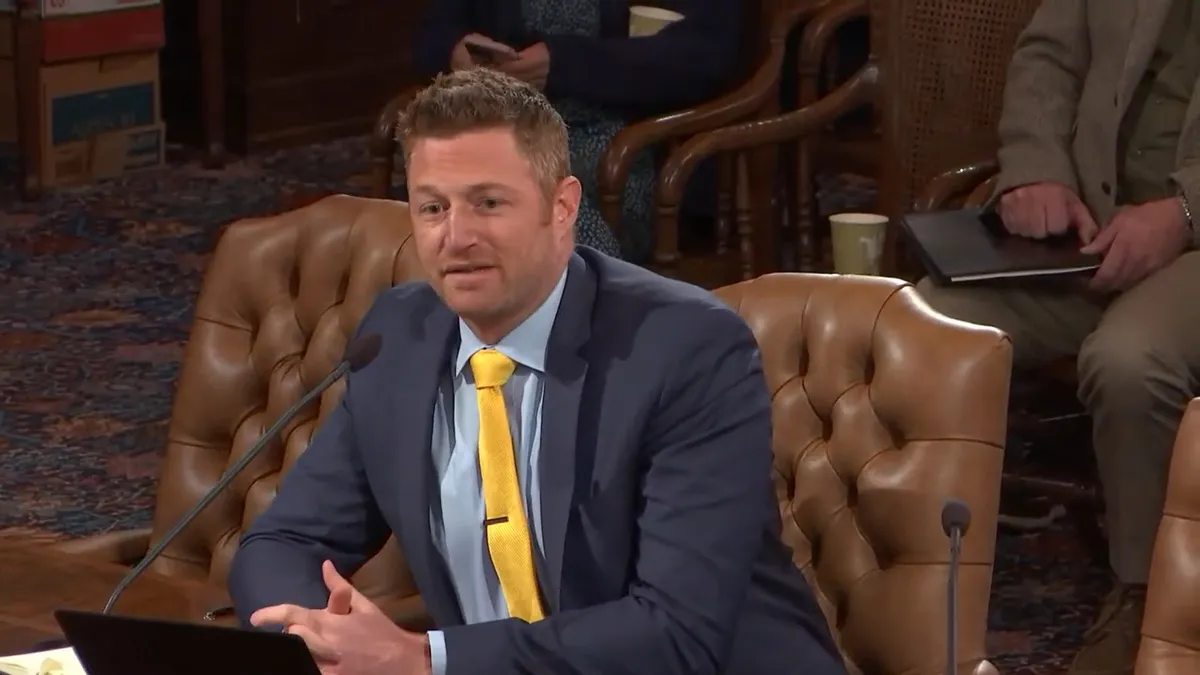Dive Brief:
- Generate Upcycle, a private company with more than 20 organics recycling facilities in North America and Europe, criticized Michigan's regulatory approach to the use of digestate as fertilizer at a recent state oversight hearing. The company is in the final days of shutting down and decommissioning its Fremont Regional Digester in the state.
- Generate Upcycle Vice President Dan Meccariello said that the Michigan Department of Environment, Great Lakes, and Energy had “outwardly demonstrated and expressed bias against anaerobic digestion" during permit negotiations that led Generate to believe it could not continue operating in the state.
- In a statement, an EGLE spokesperson pushed back on Meccariello's testimony and said the agency looked forward to defending itself at a future hearing.
Dive Insight:
The Fremont facility, which first opened in 2012, had the capacity to process 150,000 tons of organics annually. Generate Upcycle, a subsidiary of Generate Capital, bought the site in 2017 out of receivership and worked to improve its technology amid odor complaints.
The March hearing, organized by the state's House Oversight Committee, explored complaints about EGLE's regulatory practices. Generate executives have publicly decried the regulatory process for anaerobic digesters in Michigan since 2023, and said the state’s rules have become more burdensome than any other North American state or territory where it operates.
In recent years, EGLE had attempted to require Generate acquire a groundwater permit for its digestate, which the company had previously permitted as a fertilizer. But Generate said such regulations, which would apply stricter pollutant limits to the product, were not necessary.
A spokesperson said EGLE continues to support anaerobic digestion in the state, which was supported by a clean energy bill package passed in 2023. EGLE did not disclose the current number of operating food waste digesters or the number of applications pending for new digesters in Michigan.
“The Michigan Department of Environment, Great Lakes, and Energy recognizes the value of digesters in Michigan and is committed to working with the state’s many digester operators ensuring they can continue transforming waste into a resource while protecting the environment,” said Dale George, director of communications for the agency.
Meccariello said Generate's run-ins with the agency began shortly after the company acquired the Fremont Regional Digester. He alleged that EGLE employees threatened Generate's employees "on numerous occasions by insisting that they can and will shut the facility down."
Before Generate acquired the facility, neighbors called in hundreds of odor complaints for the site. But Meccariello insisted that improvements Generate has made in the following years have addressed many of the issues that residents flagged. He said in the last three years, the facility received less than five odor complaints annually, and the facility had gone more than a year without a complaint prior to when the shutdown process began.
Democrats on the state's oversight committee questioned whether the liquid digestate produced at the facility and used as a fertilizer is safe.
“My big concern with these types of facilities is the water runoff potentially getting into the water... and then the air pollution,” Rep. Dylan Wegela said.
Meccariello said Generate complies with all applicable air and water regulations in the states and provinces where it operates. He also noted that Ontario and states like New York have not required digesters to comply with restrictive groundwater regulations like Michigan sought to apply to the facility.
“The digestate produced in [other] locations can be created, certified as a fertilizer and land applied in Michigan as a fertilizer product,” Meccariello said. “However, if the same material is produced in the state of Michigan as it was from our Fremont facility, it has been reclassified as a pollutant-laden industrial wastewater.”
Generate first threatened to shut down the facility 2023, and is now in the final stages of decommissioning it. The company continues to pursue organics recycling opportunities in other states.











